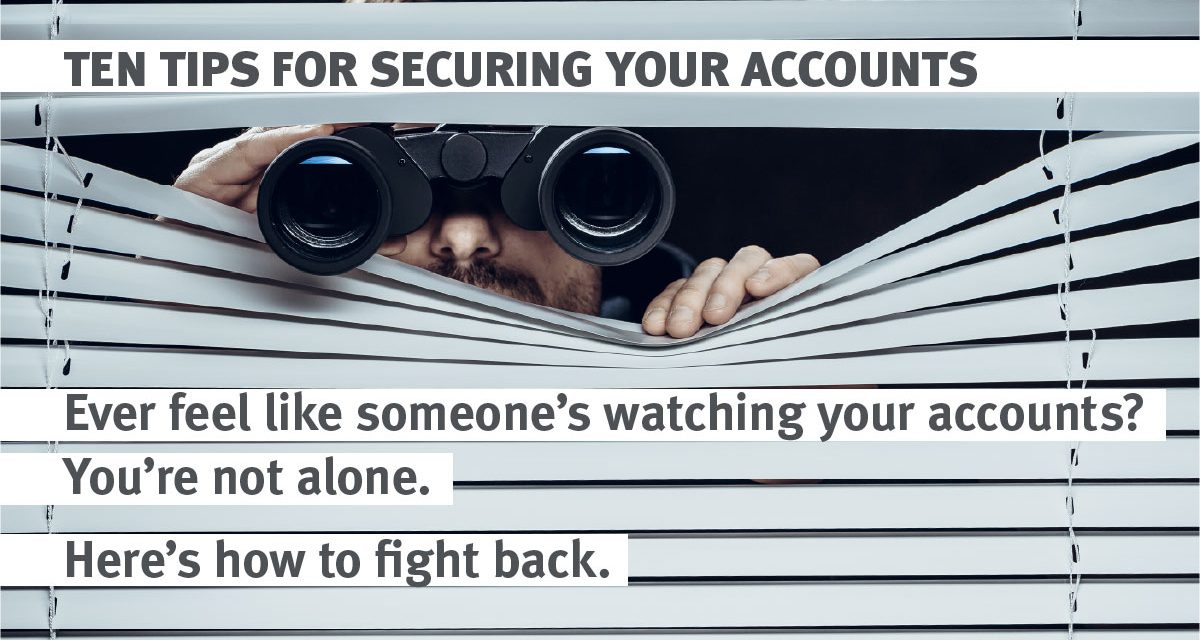Ever had that spine-tingling feeling like someone’s lurking around your accounts, peeking over your digital shoulder? You’re not alone. Here are ten tips to help secure your accounts and give you peace of mind.
1. Use Strong Passwords
Create passwords that are at least 12 characters long, combining uppercase and lowercase letters, numbers, and special symbols. Avoid easily guessable information like birthdays or names. Consider using a password manager to generate and store complex passwords securely.
2. Enable Two-Factor Authentication (2FA)
Activate 2FA on your accounts whenever possible. This adds an extra layer of security by requiring not just your password but also a second method of verification, such as a text message or authentication app code.
3. Regular Account Monitoring
Check your bank and credit account statements frequently. Look for unauthorized transactions or any unfamiliar activity. Report suspicious activity immediately.
4. Update Software Regularly
Keep your devices, applications, and operating systems up to date. Software updates often include security patches that protect against vulnerabilities.
5. Be Wary of Phishing Scams
Be cautious with emails or messages that urge you to click links or provide personal information. Always verify the sender’s identity before responding or clicking on any links.
6. Use Secure Connections
When accessing sensitive accounts, ensure you’re on a secure Wi-Fi connection. Avoid using public Wi-Fi networks for transactions or accessing sensitive information. If you must, use a Virtual Private Network (VPN).
7. Log Out After Use
Always log out of your accounts when you’re finished using them, especially on shared or public devices. This helps prevent unauthorized access.
8. Set Up Account Alerts
Enable notifications for account activity, like login attempts or withdrawals. Alerts can help you quickly spot any unauthorized access.
9. Limit Personal Information Sharing
Be cautious about how much personal information you share online. The more information you provide, the easier it can be for malicious actors to guess your security questions or passwords.
10. Stay informed
Keep up on the latest security threats and scams so you can recognize potential risks and respond effectively.
Education is your best defense against fraud and Mid Oregon is here to provide tools and resources to help keep your digital life and finances safe from the bad guys.
Learn more about protecting your personal information and finances—visit Mid Oregon’s Security and Fraud Page.





